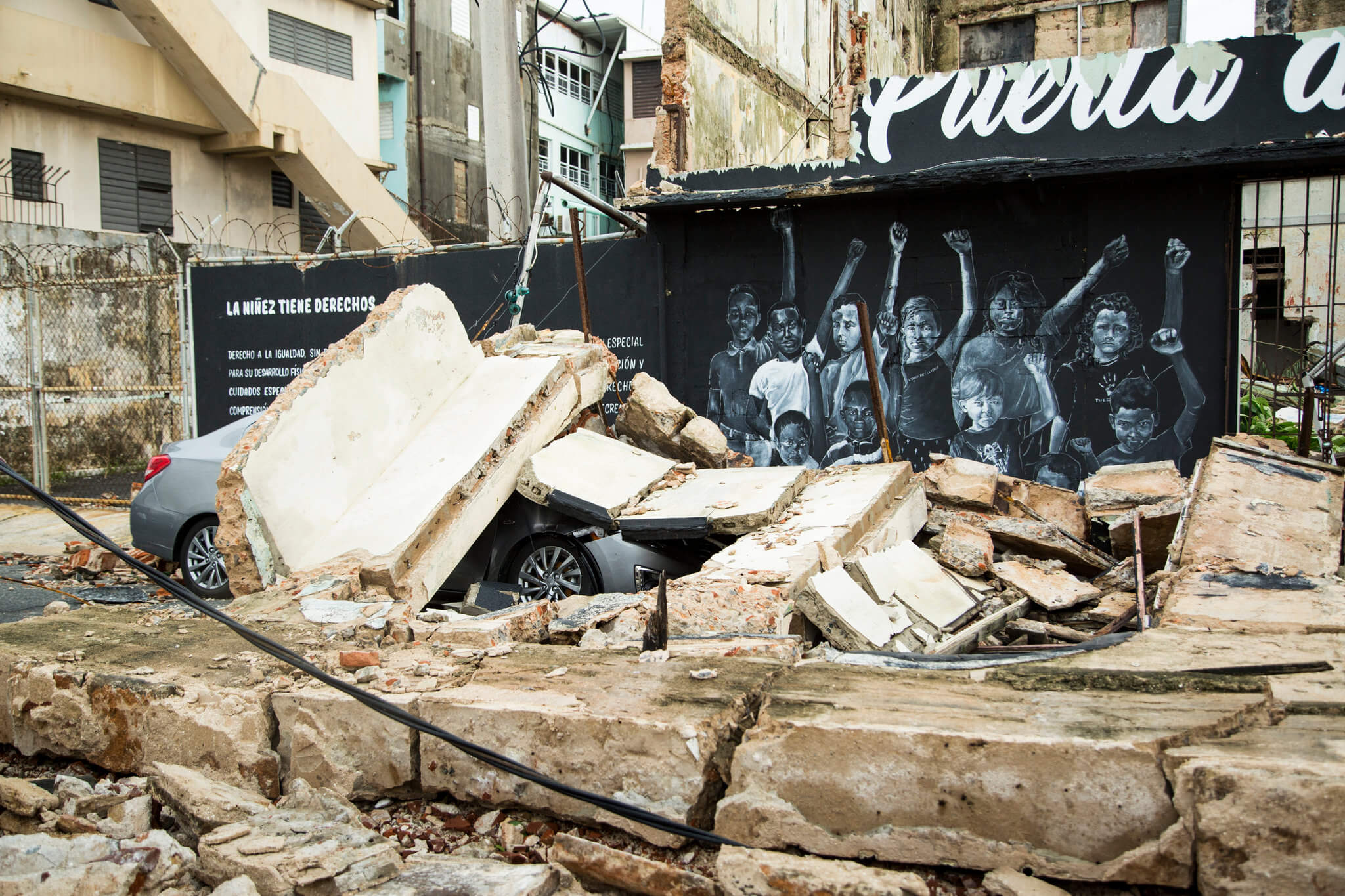Global Warming Will Change Where We Live

It’s interesting that:
a) everyone’s calling for the reconstruction of the island (albeit a slog; 11% of the island was still without electrical power six months after the storm),
though
b) no one is suggesting that the island will eventually become uninhabitable, and it may make sense to outline the events that will require making such a declaration, e.g., back-to-back Cat 4+ hurricanes.
Given the trajectory of climate change, it’s hard to imagine a scenario in which certain parts of the Caribbean don’t eventually become too expensive to repair, and are simply written off.
Of course, it will only be a few decades later that places like Barrow, Alaska will be beach destinations. Surf’s up!


Craig,
But it’s not really happening is it ? Great storms and disaster are very theatrical, dramatic and exciting news events, but in reality are not portents of cataclysmic climate change.
What has changed is the growth of human population, increasing urbanization and dramatization by mass media.
Hurricanes such as the great 1804 Antigua–Charleston hurricane, were of far greater intensity.
and after affects, but lacked today’s urbanisation and TV coverage.
The theory that climate change is producing conditions conducive to more hurricanes, cyclones, storms etc, is mostly based on an assumptions and modelling translating certain assumptions into “facts” while omitting or discounting factors not convenient to a preconceived theory.
Dr James Baldini, Reader in Earth Sciences at Durham University, a leading climate alarmist and prolific author of the “peer reviewed” contributions to publications organized by his group of ‘concerned scientists’, recently admitted to a certain amount “improvements’ and ‘quantifying’ of information.
In contrast, I have always respected the pioneering work conducted by the leading climate activist, Dr Michael E. Mann, Dr Mann has worked hard to improve methodology and produce accurate data.
Nor has he allowed his personal convictions and activism compromised or taint his work. He’s been careful as an advocate to separate his conclusions from his research.
Dr Mann is convinced of his positions on global warming and climate change, yet is honest enough to admit his modelling is incomplete, subject to change and alteration as new information is added. (He was the first to dispel the idea of tree rings and ice core samples being accurate or infallible).
Although a target of the “climate-gate” scandal, Dr Mann emerged as appearing a little naive, perhaps even over-enthusiastic and eager to accept the word of less honest activistd, but he not involved in deliberate intellectual dishonesty or conscious distortions.
Since then he and his colleagues have worked hard to understand the vexing implications of Atlantic hurricanes. His research reveals periods intensity and relative quiet occurring on regular cycles at the beginning and end of each century for over 600 years.
This appears to have remained relatively unchanged despite the implications of climate change creating more favorable conditions. These revelations have led Dr Mann to change his original prediction of more frequent hurricanes, to more intensely destructive hurricanes.
Factors such as the absence or intensity of drying influences such as pockets of Saharan dust drift out over the Atlantic, are difficult to predict and the effects are hard to assess.
Economic devastation of weather events on island nations, especially in the Caribbean, are nothing to do with “climate Change” ! The real causes are political and social corruption, inefficient administration, dysfunctional societies, poverty, inappropriate development, disorganized emergency services, etc.
Puerto Rico is an excellent example, suffering from all the above maladies.
What is disappointing is your loss of interest in emission abating or mitigating technology. You seems stuck in repeating the mantra of 2011 !
“It’s not happening?” Well, you could ask some of the people who absorbed the $200 billion in damages from the three 2017 hurricanes, topped only by 2005 (Katrina and four others). Just look.
Craig,
My comment “It’s not happening?” referred to your headline “Global Warming Will Change Where We Live”.
Occurrences of Caribbean hurricanes are neither new, nor increasing in frequency. The factors affecting the $200 billion in damages have nothing to do with “climate change” but relate to increases in population, development etc.
The devastation of 1804, was much greater in proportion (As Arron Burr recorded) but, of course in that era it was just put down to the risk of living in the path of nature ! The damage in 1804 was estimated at over $5,000,000. At that time only a fraction of the population lived in the hurricane zone in comparison with today and infrastructure was virtually non-existent.
In the last hundred years more than 33 Category 5 tropical cyclones have been recorded (about every 3 years). Not all hurricanes reach landfall.
Only 1932, 1933, 1961, 2005, 2007, and 2017 experienced has more than one Category 5 hurricane in a single year and only in 2007 and 2017 did more than one Category 5 hurricane make landfall. However, reports exist of several hurricanes occuri8ng in a single year in the late 1880’s and the early decades of the twentieth century.
Thankfully, in modern times shipping losses due hurricanes have dramatically declined with the introduction of advanced early detection warning techynology.
Meanwhile, if you wanted to buy a nice vacation home in Jamaica, you can expect to pay US$800,000 for an apartment or US$10-20 million for a nice house! Bermuda real estate is even more expensive, with luxury homes costing $ 30 to 100 million, and even apartments well above $1,000,000
There are no real bargains to be had in the real estate market of Antigua, Virgin Islands, Saint Lucia, Anguilla etc either ! Most of these island reflect a growing boom in real estate regardless of the risk of hurricanes.
No sign of anyone signing up to buy Alaskan beachfront land instead ! 🙂